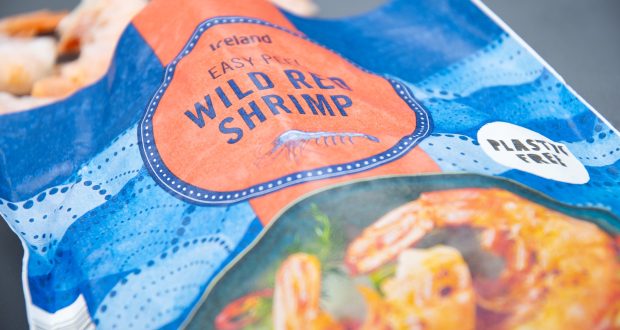Flexible packaging specialist Parkside has collaborated with Iceland to create new paper-based packs for frozen seafood.
The retailer’s Northcoast range of frozen seafood will incorporate flexible paper packaging and is said to be one of the first successful applications for the material in frozen food. Iceland’s Northcoast products were previously packed in an LDPE and are now in a recyclable paper pouch.
According to Parkside, the heat-sealable paper solution was designed to withstand the rigours of frost and moisture in a freezer environment, for prolonged periods of time. It incorporates a range of water-based coatings with high barrier performance, which are designed to break down when re-pulped in the paper recycling process.
Mark Armstrong, packaging specialist at Iceland, said: “As everyone knows, we are loud and proud about our forward-thinking ideas and commitment to plastic-free packaging across our products. We previously worked with Parkside in a successful bid to reduce food waste via a lidding film solution in 2017. But we know we can do more. As consumer sentiment continues to grow for circular solutions, it is the perfect time to collaborate once again in a bid to reduce unnecessary plastic in our packaging.
“Bag sealing was a challenge, as was ensuring the material had the necessary barrier properties. We also wanted the print to match the existing LDPE bag and therefore a lot of time was spent in artwork and repro to give us the best possible result.”
Parkside sales account manager Mark Shaw added: “It has been a huge privilege for us to work on this project with Mark and his team. Until recently, achieving a high level of grease and oil resistance and heat seal ability for frozen food has been extremely challenging. Typically, a plastic layer such as Polyethylene would need to be extruded or laminated to the paper, which would then need to be removed when recycling post-consumer use. Our leading technology removes the need for the plastic and gives a truly recyclable paper solution with the added benefit of high barrier functionality.”





